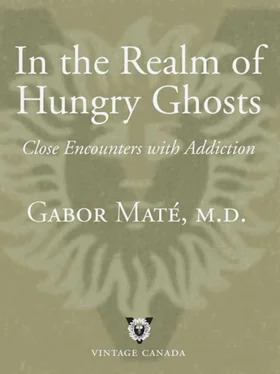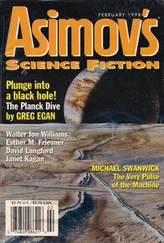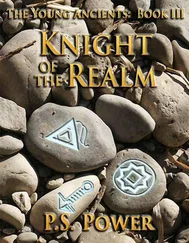As we have seen, the dominant emotional states and the brain patterns of human beings are shaped by their early environment. Throughout their lifetimes, they are in dynamic interaction with various social and emotional milieus. If we are to help addicts, we must strive to change not them but their environments. These are the only things we can change. Transformation of the addict must come from within and the best we can do is to encourage it. Fortunately, there is much that we can do.
In the previous chapter I presented evidence that addictive habits, generally speaking, are too deeply entrenched in the brain of the hardcore substance user to be overcome by a simple act of will. As Jaak Panksepp put it: “Those habit structures are so incredibly robust, and once they are laid into a nervous system they will guide behaviour without free choice.” My discussion with Professor Panksepp did not end there. We went on to consider what support addicts would need to overcome the powerful drives imprinted by their painful experiences. “The only way they can escape drug addictions is if their pain is alleviated, their emotions are brought back toward healthy balance, so they have a chance to think about it,” Dr. Panksepp said, echoing both what brain research has told us about mental freedom and what human experience has confirmed. “Free choice only comes from thinking, it doesn’t come from emotions. It emerges from the capacity to think about your emotions. When you’re operating in the habit mode you are feeling, but those feelings are not being reflected upon. They are too powerful, they are too habitual. So, the treatment of addiction requires the island of relief where a need to soothe pain does not constantly drive a person’s motivation. It requires a complex and supportive social environment.”
How to create that island of relief is the core issue in projecting a humane policy toward addiction. The work of the Portland Hotel Society is an isolated, flawed but worthy attempt at offering the respite from anguish and anxiety that Dr. Panksepp suggests. Although the PHS has grown from an initial grant of $23,000 back in 1991 to a current annual operating budget of over $11 million—most of it for housing—the services it can provide are no more than a drop in the bucket compared with the needs of the community it serves in the Downtown Eastside.

Addicts are locked into addiction not only by their painful past and distressing present, but equally by their bleak view of the future. They cannot envision the real possibility of sobriety, of a life governed by values rather than by immediate survival needs and by desperation to escape physical and mental suffering. They are unable to develop compassion toward themselves and their bodies while they are regarded as outcasts, hunted as enemies and treated like human refuse.
As we have seen, a major factor in addiction that medical and social policies must take into account is stress. If we want to support people’s potential for healthy transformation, we must cease to impose debilitating stress on their already burdened existence. Recall that uncertainty, isolation, loss of control and conflict are the major triggers for stress and that stress is the most predictable factor in maintaining addiction and triggering relapse. These are also precisely the conditions that the demonization of addiction and the War on Drugs (deliberately!) impose on hardcore substance users.
I have quoted a report in the Journal of the American Medical Association, which showed that a history of childhood abuse increases physiological stress reactivity for a lifetime, a reactivity “which is further enhanced when additional trauma is experienced in adulthood.” 4The addict is re-traumatized over and over again by ostracism, harassment, dire poverty, the spread of disease, the frantic hunt for a source of the substance of dependence, the violence of the underground drug world and harsh chastisement at the hands of the law—all inevitable consequences of the War on Drugs.
Studies on primates and other animals have also shown that low social status and being dominated enhance the risk of drug use, with negative effects on dopamine receptors. By contrast, after being housed with more subordinate animals, dominant monkeys had an increase of over 20 per cent of their dopamine receptors and less tendency to use cocaine. 5The findings of stress research suggest that the issue is not control over others, but whether one is free to exercise control in one’s own life. Yet the practices of the social welfare, legal and medical systems subject the addict to domination in many ways and deprive her of control, even if unwittingly.
In relegating the addict to the bottom of the social and moral scales and in our contemptuous rejection of her as a person, we have created the exact circumstances that are most likely to keep her trapped in pathological dependence on drugs. There is no island of relief, only oceanic despair.
“The War on Drugs is cultural schizophrenia,” says Jaak Panksepp. I agree. The War on Drugs expresses a split mindset in two ways: we want to eradicate or limit addiction, yet our social policies are best suited to promote it, and we condemn the addict for qualities we dare not acknowledge in ourselves. Rather than exhort the addict to be other than the way she is, we need to find the strength to admit that we have greatly exacerbated her distress and perhaps our own. If we want to help people seek the possibility of transformation within themselves, we first have to transform our own view of our relationship to them.

That our current approach is a dead end has been acknowledged in Canada, in the U.S. and internationally by many people whose political and ideological starting point was not anywhere close to embracing the decriminalization of drugs. Today, November 17, 2006, as I’m writing this chapter, the Globe and Mail reports that the B.C. Progress Board, a blue-ribbon panel made up of business-people and academics appointed by the British Columbia government to offer advice on economic and social issues, has proposed that drugs either be decriminalized or that the War on Drugs be stepped up so as to completely eliminate the drug trade in this province. One or the other. The status quo is “clearly unacceptable if we seek truly to reduce the rates of crime and victimization in the province,” the Progress Board stated. 6
The panel warns, in the words of the Globe report, that “a crackdown on the drug trade would mean more police, tougher penalties for drug-related crimes and more jails to accommodate the dramatically increased demand for secure facilities.” In effect, the recommendations are a barely camouflaged call for decriminalization. The so-called other “option,” the elimination of drug trafficking and use, is no option at all—only a chimera that even the most Draconian measures have failed to conjure into reality anywhere in the world. Unless we are willing to see our society metamorphose into a brutal police state, no coercive policy will come close to even limiting drug use, let alone eliminating it.
Once we understand that the current assault on addicts creates greater insecurity for everyone and severe hardship for users, once we understand that stressing people chronically and mercilessly can in no way promote their capacity for healthy transformation, it becomes a straightforward matter to envision approaches that rely not on moralizing but on science and humane values.
The indispensable foundation of a rational stance toward drug addiction would be the decriminalization of all substance dependence and the provision of such substances to confirmed users under safely controlled conditions. It’s important to note that decriminalization does not mean legalization. Legalization would make manufacturing and selling drugs legal, acceptable commercial activities. Decriminalization refers only to removing from the penal code the possession of drugs for personal use. It would create the possibility of medically supervised dispensing when necessary. The fear that easier access to drugs would fuel addiction is unfounded: drugs, we have seen, are not the cause of addiction. Despite the fact that cannabis is openly available in Holland, for instance, Dutch per-capita use of marijuana is half that in the United States. And no one is advocating the open availability of hard drugs.
Читать дальше













